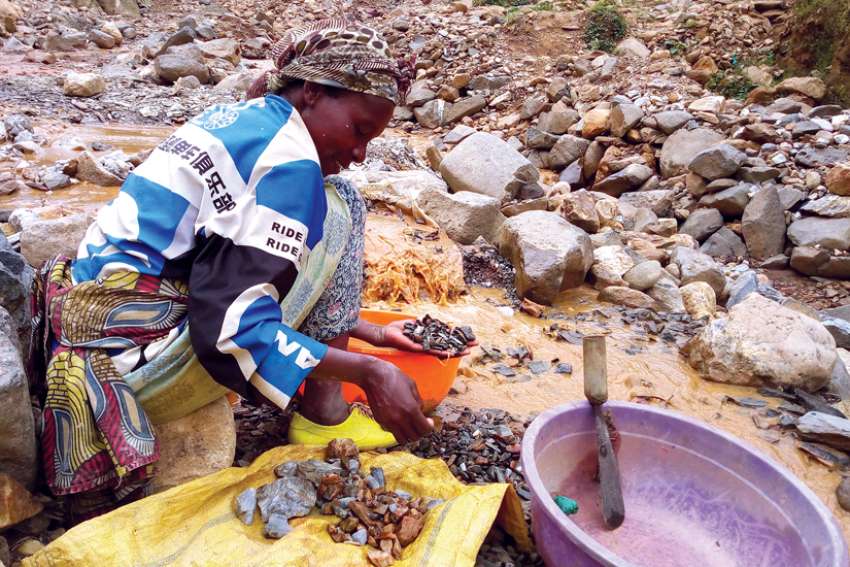Jesuit Fr. Jacques Nzumbu is asking Canadians to value that future, care for it and commit to the people who dig it up from Congo’s mineral-rich soil.
“People, poor people, are going to artisanal mining just to survive,” Nzumbu told The Catholic Register in an interview. “What we need is transformation. I mean, if there are no mines, no exploitation in Congo, this can be an opportunity.”
Congo is the Saudi Arabia of green energy, producing 70 per cent of the world’s cobalt and possessing 50 per cent of the world’s reserves of the critical mineral. It also has 80 per cent of the world’s coltan and is the world’s number one producer of tantalum by a wide margin. These are the minerals that drive the digital economy, found in semiconductors and in the batteries that power electric vehicles.
A green, post-oil economy will not happen without Congo, and Canadian mining companies know it. The money to invest in Congolese mining is raised on the Toronto Stock Exchange. The headquarters of mining companies operating in Congo are in Toronto and Vancouver. But the Congolese are not benefiting. Congolese real gross domestic product per capita comes to $1,100 (U.S.) per year, compared to $45,900 (U.S.) per year in Canada.
From 15 to 30 per cent of Congo’s cobalt is mined by unregulated, artisanal miners — barefoot women and children struggling in the mud, washing their minerals in nearby rivers then selling it to more than 200 rebel militias who then sell it on to Canadian mining companies.
The supply chain links Congo to Canada and links Canadian investors to a war that over 25 years has killed more than six million Congolese. Nzumbu is asking Canadians to account for where their corporations are finding the minerals that make Canadians rich. Supply chain due diligence laws could change the picture.
On paper, Congo has one of the most modern and responsible mining codes in the world.
“But it’s not enforced. This is the problem,” said Nzumbu, who is in graduate studies in mining and economics at the University of Quebec at Montreal.
Nzumbu isn’t asking Canada to solve Congo’s many problems. But he is asking Canadians to think of the problems with mining in Congo on a global scale. After all, the benefits of Congolese mining are global.
“What we are facing is a global problem. It’s like climate change, it’s the same. You cannot solve the climate change problem without thinking globally,” he said. “We are thinking globally, acting locally. But the issue is global.”
For Nzumbu, these aren’t just economic problems. He reads Pope Francis’ letter on politics, Fratelli Tutti, as applying directly to life in Congo. Nzumbu doesn’t just want peace in Congo so that mining can be better regulated or more efficient. He wants a society rooted in peace.
“I’m a Jesuit. I decided to go to study economics, to study politics, to study business, to study law. It was my contribution to peace,” he said.
“I came to these social issues, mining issues, because of peace… For me, my commitment to mining, (corporate) governance, the mining issue is for peace.”


